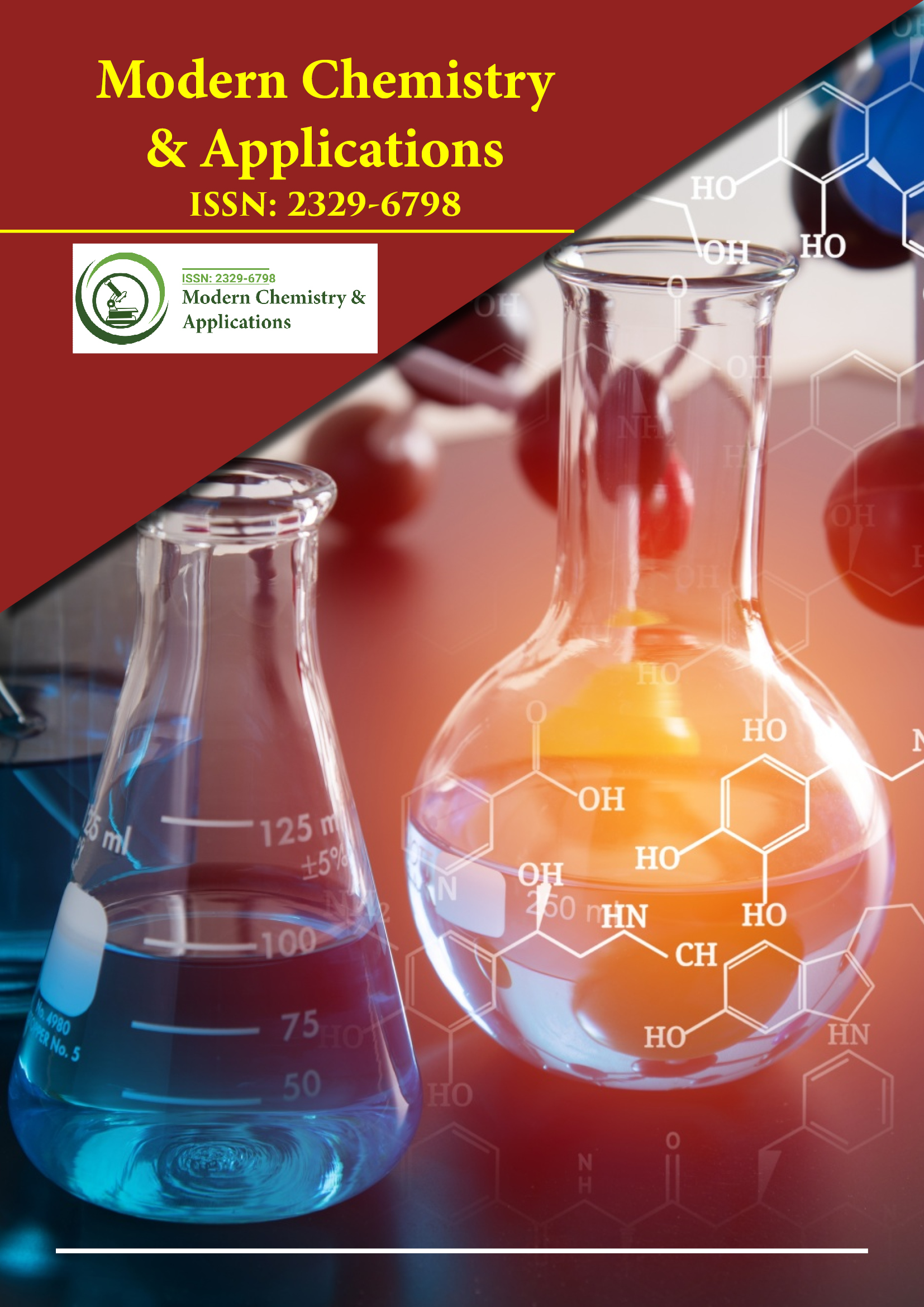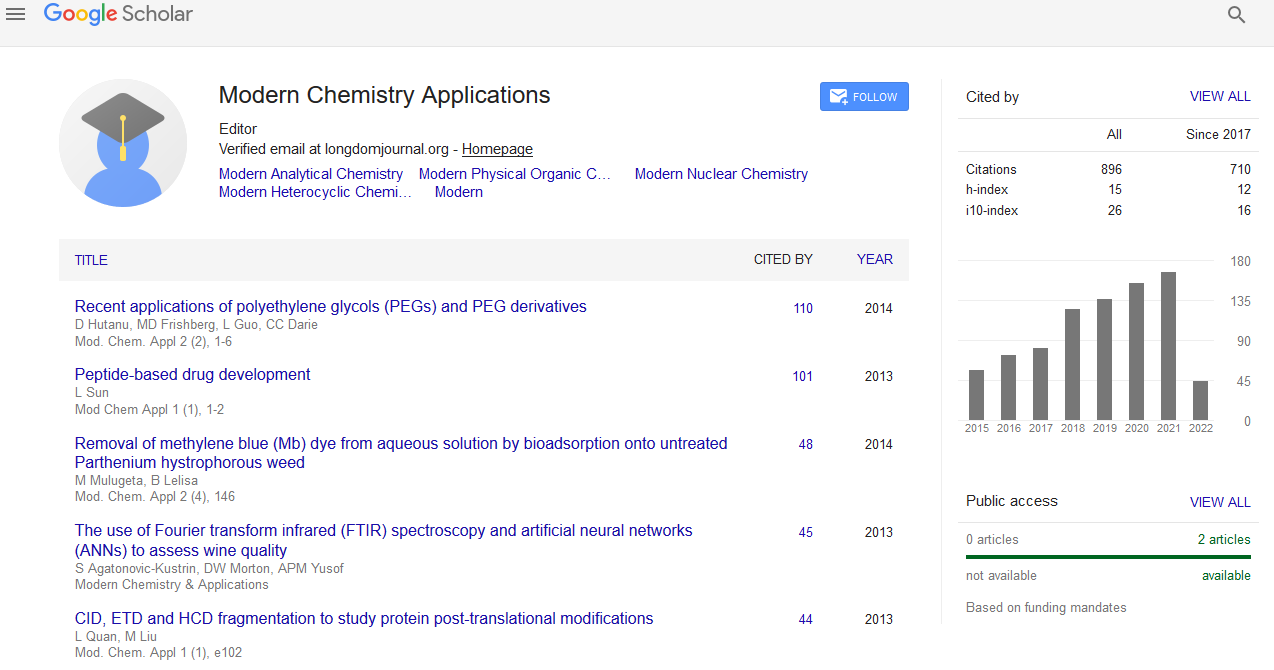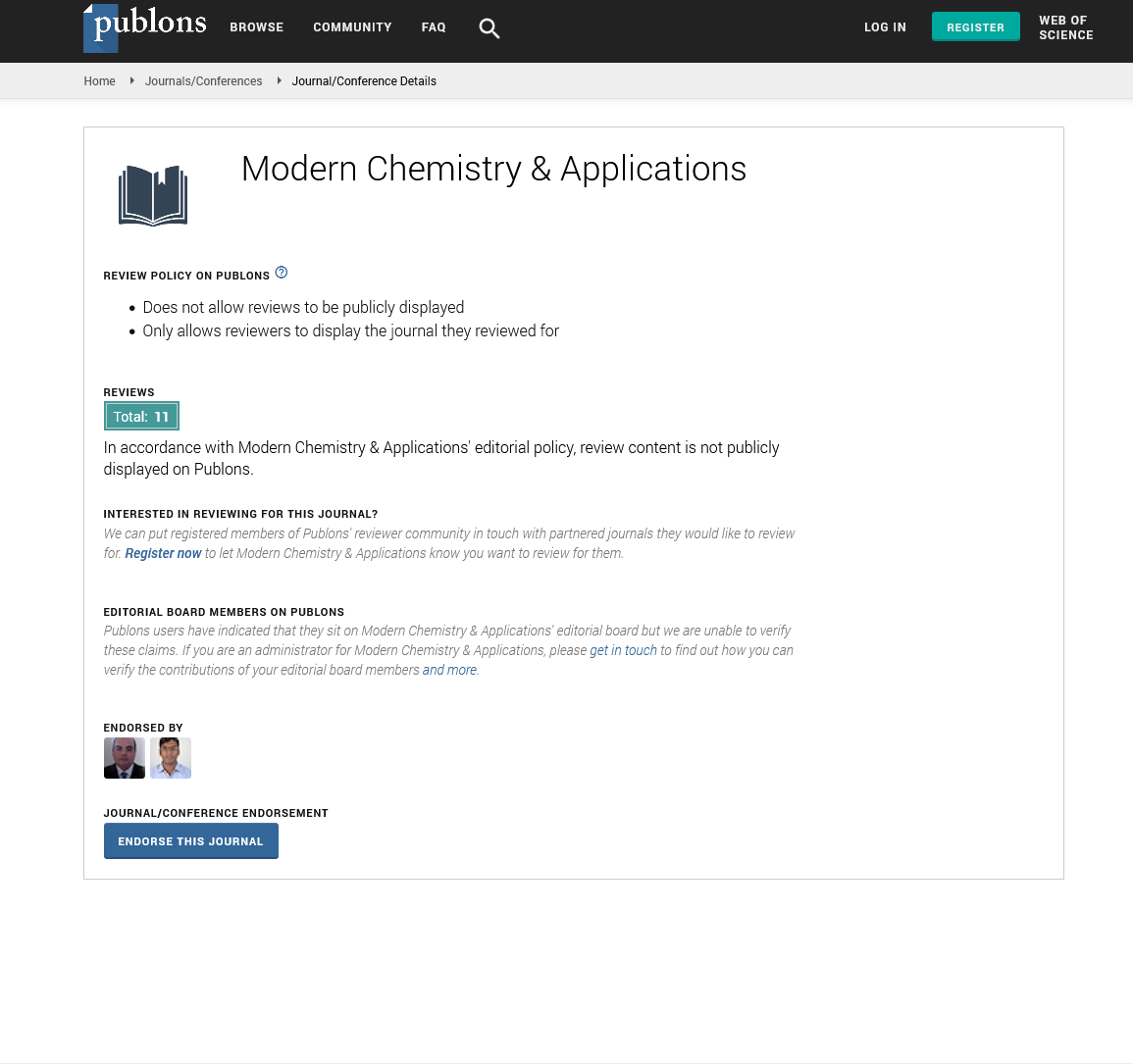Indexed In
- Open J Gate
- JournalTOCs
- RefSeek
- Hamdard University
- EBSCO A-Z
- OCLC- WorldCat
- Scholarsteer
- Publons
- Geneva Foundation for Medical Education and Research
- Google Scholar
Useful Links
Share This Page
Journal Flyer

Open Access Journals
- Agri and Aquaculture
- Biochemistry
- Bioinformatics & Systems Biology
- Business & Management
- Chemistry
- Clinical Sciences
- Engineering
- Food & Nutrition
- General Science
- Genetics & Molecular Biology
- Immunology & Microbiology
- Medical Sciences
- Neuroscience & Psychology
- Nursing & Health Care
- Pharmaceutical Sciences
Catalytic synthesis of environmental friendly polymer poly lactic acid via continuous reactive extrusion: Recent trends
5th Global Chemistry Congress
September 04-06, 2017 | London, UK
Satya P Dubey, Hrushikesh A Abhyankar, Veronica Marchante and James L Brighton
Cranfield University, UK
Scientific Tracks Abstracts: Mod Chem Appl
Abstract:
The disposal of large amount of polymer waste is one of the major challenges of this century. Use of bio-degradable polymers obtained from sustainable sources presents a solution to this problem. Poly lactic acid (PLA), a bio-degradable polymer, can be synthesized from sustainable sources as corn, starch, sugarcane and chips. Ring opening polymerization (ROP) of lactide monomer using metal/bimetallic catalyst (Sn, Zn or Al) is the preferred method for synthesis of PLA. However, the PLA synthesized using such catalysts may contain trace elements of the catalyst. These catalyst traces are known carcinogens and as such should be (ideally) eliminated from the process. Continuous reactive extrusion of lactide monomer (using the suitable reaction input has the potential to increase the throughput, and this route has been explored in the literature. In this work, reactive extrusion experiments using stannous octoate Sn(Oct)2 and tri-phenyl phosphine (PPh)3, were considered to perform ROP of lactide monomer using the microwave as an alternative energy (AE) source for activating and/or boosting the polymerization (Figure 1). Implementation of a microwave generator in a section of the extruder is one of the novelties of this research. A simulation model of ROP of PLA was formulated to estimate the impact of reaction kinetic and AE source on the polymerization process. Ludovic® software was used for the simulation of continuous reactive extrusion of the process. Experimental and simulated results were compared for the validation of the methodology. This work also highlights the advantages and drawbacks of most conventional metal catalysts, the effect of alternative energies on reaction mechanism, and safe and efficient production of PLA.
Biography :
Satya P Dubey is a Research Associate at Cranfield University, UK. He has his expertise in several aspects of material sciences such as polymer, bio-polymer, nano-materials, composites, sustainable material, metal-polymer interfaces etc. His diligent, open and contextual evaluation model based on environmental friendly polymer synthesis creates new pathways for improving polymer industry. He developed this model after years of experience in research, evaluation, teaching and administration both in basic material chemistry research as well as in developing the mathematical model in several research institutions worldwide. The current development made by him considered as a step forward for the production of biodegradable and bio-compostable polymer through more safer and greener method.


